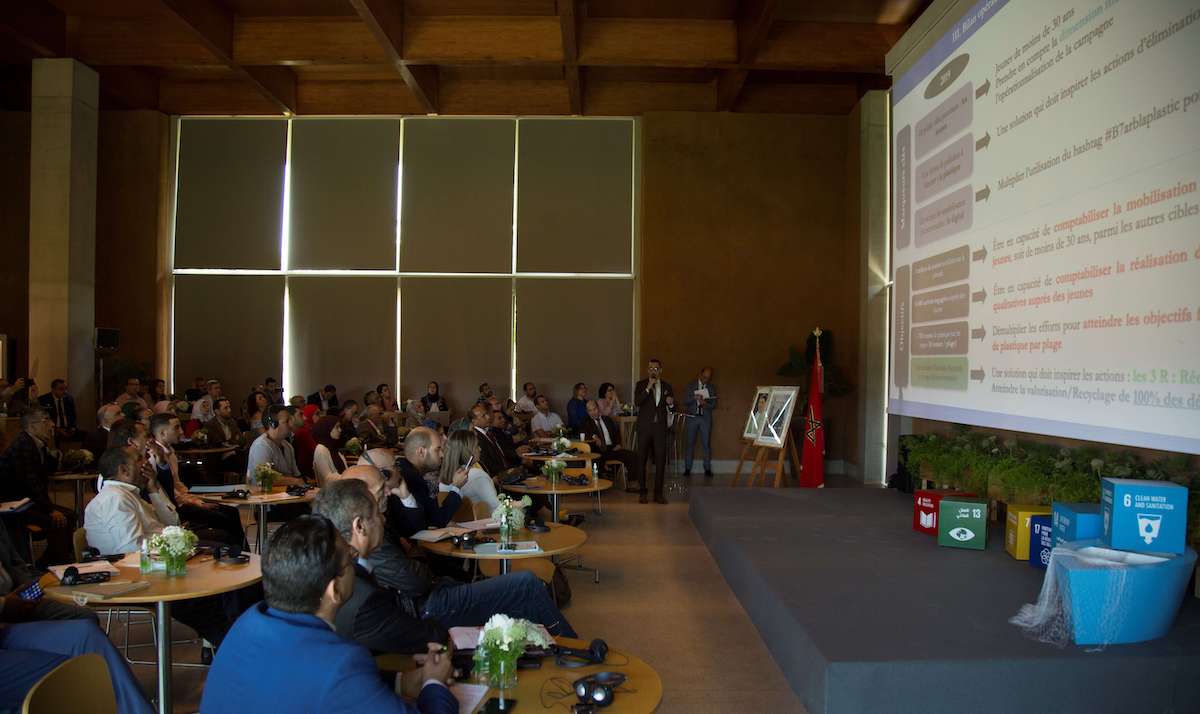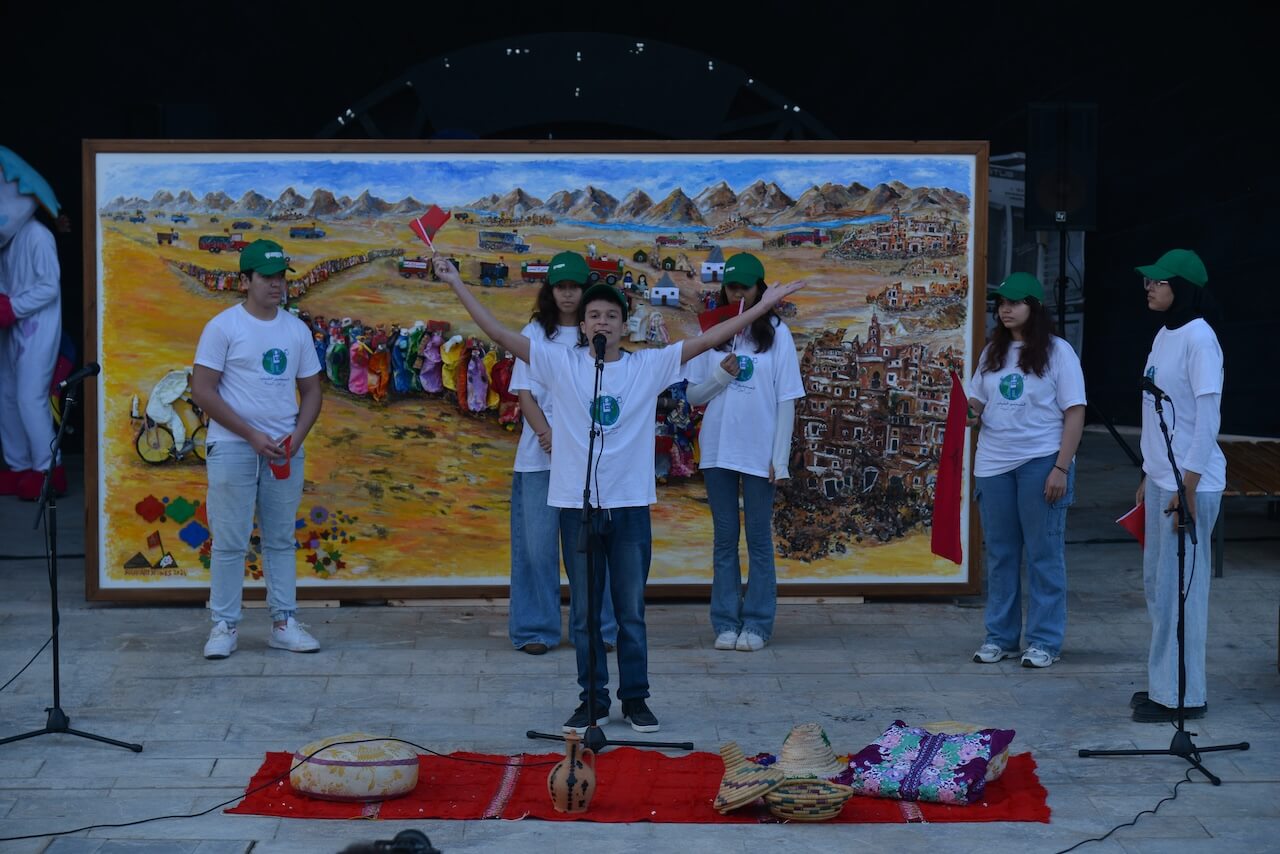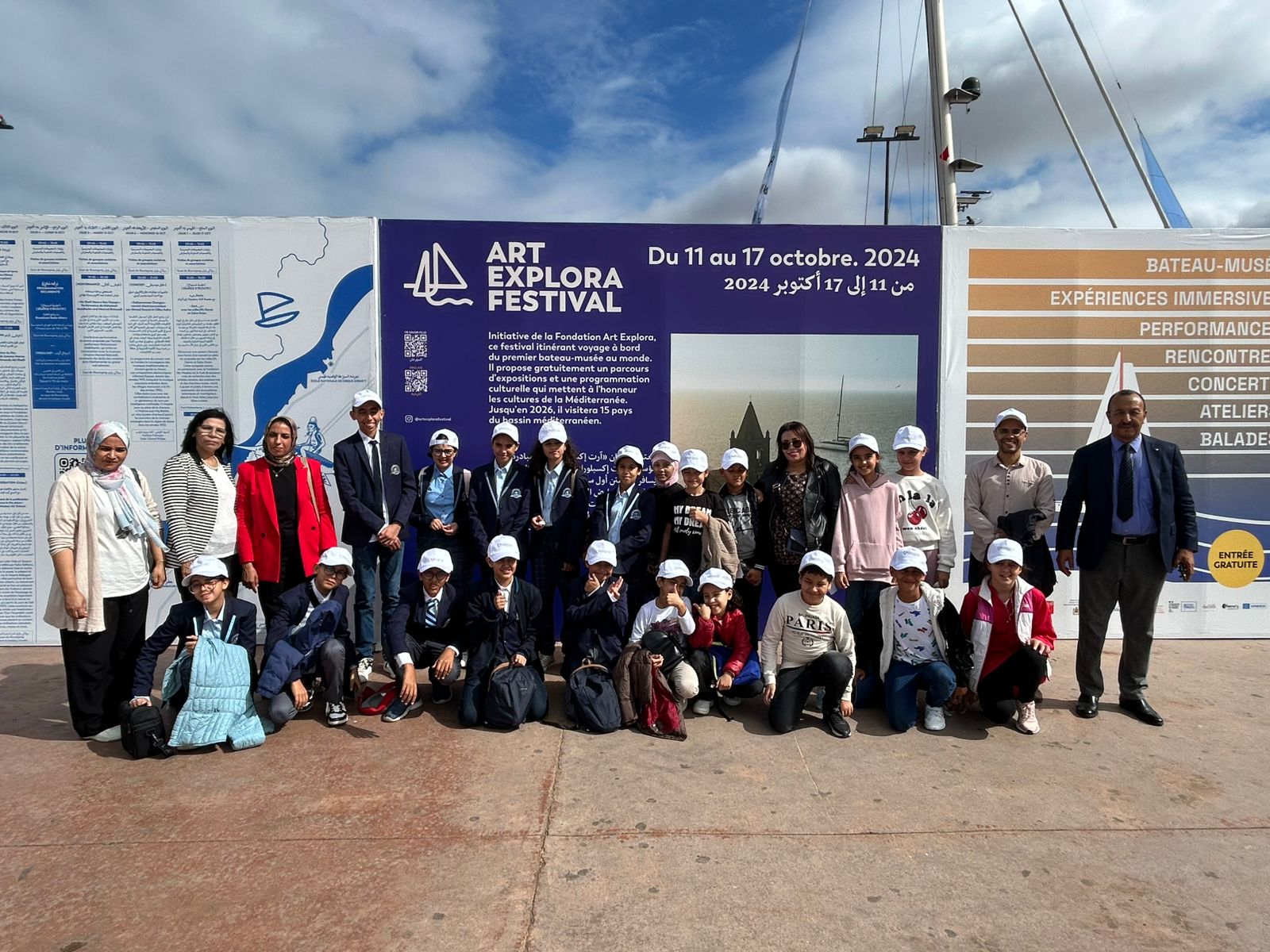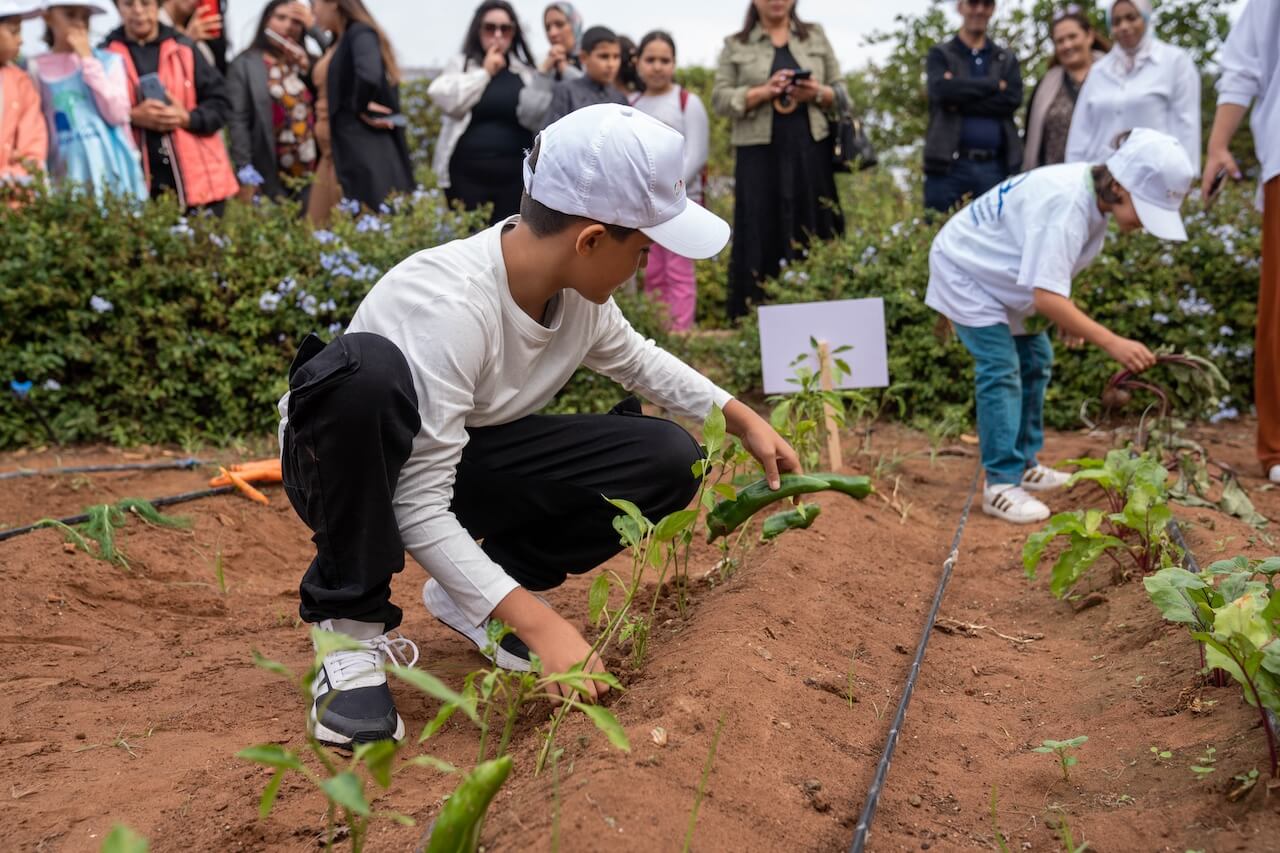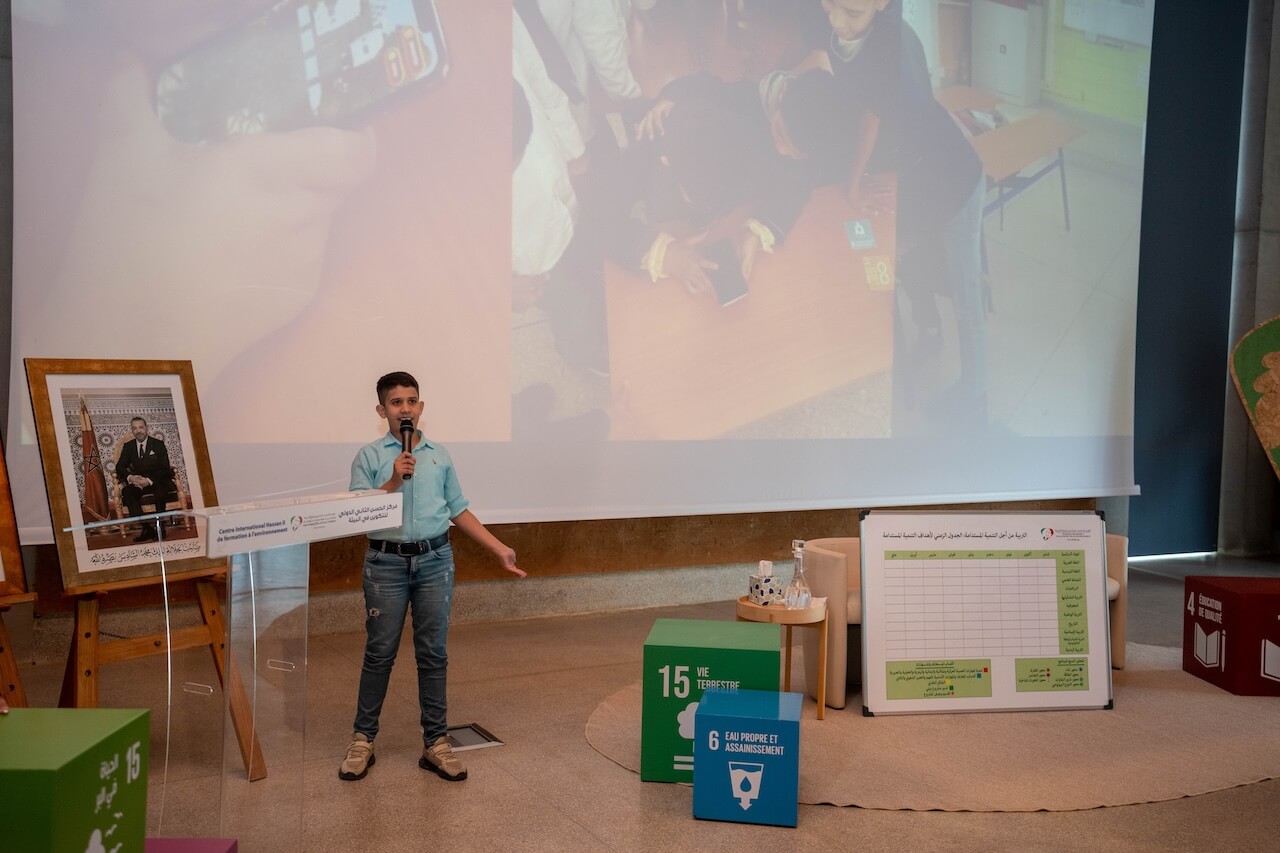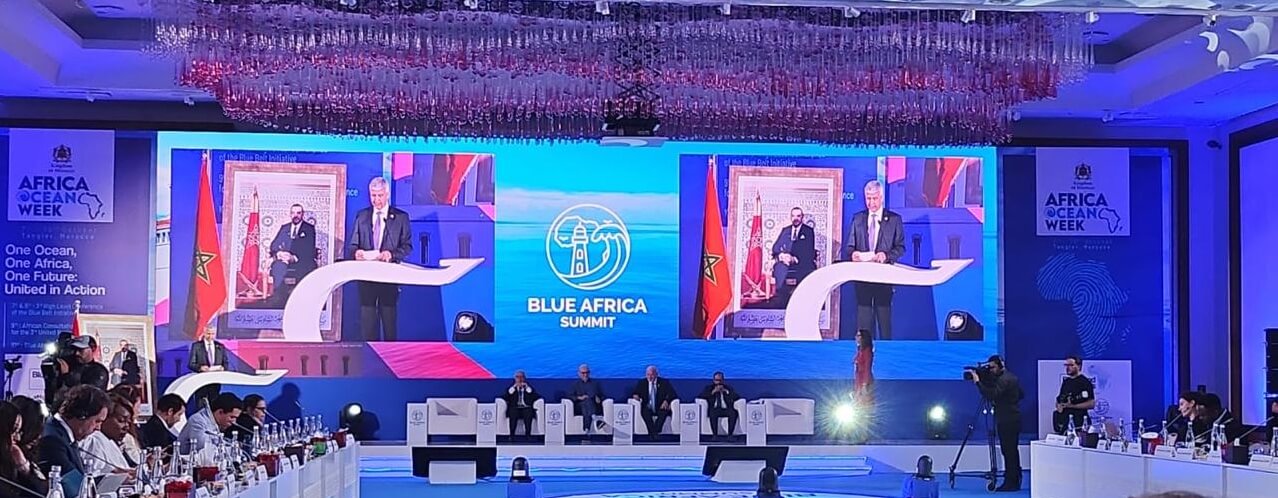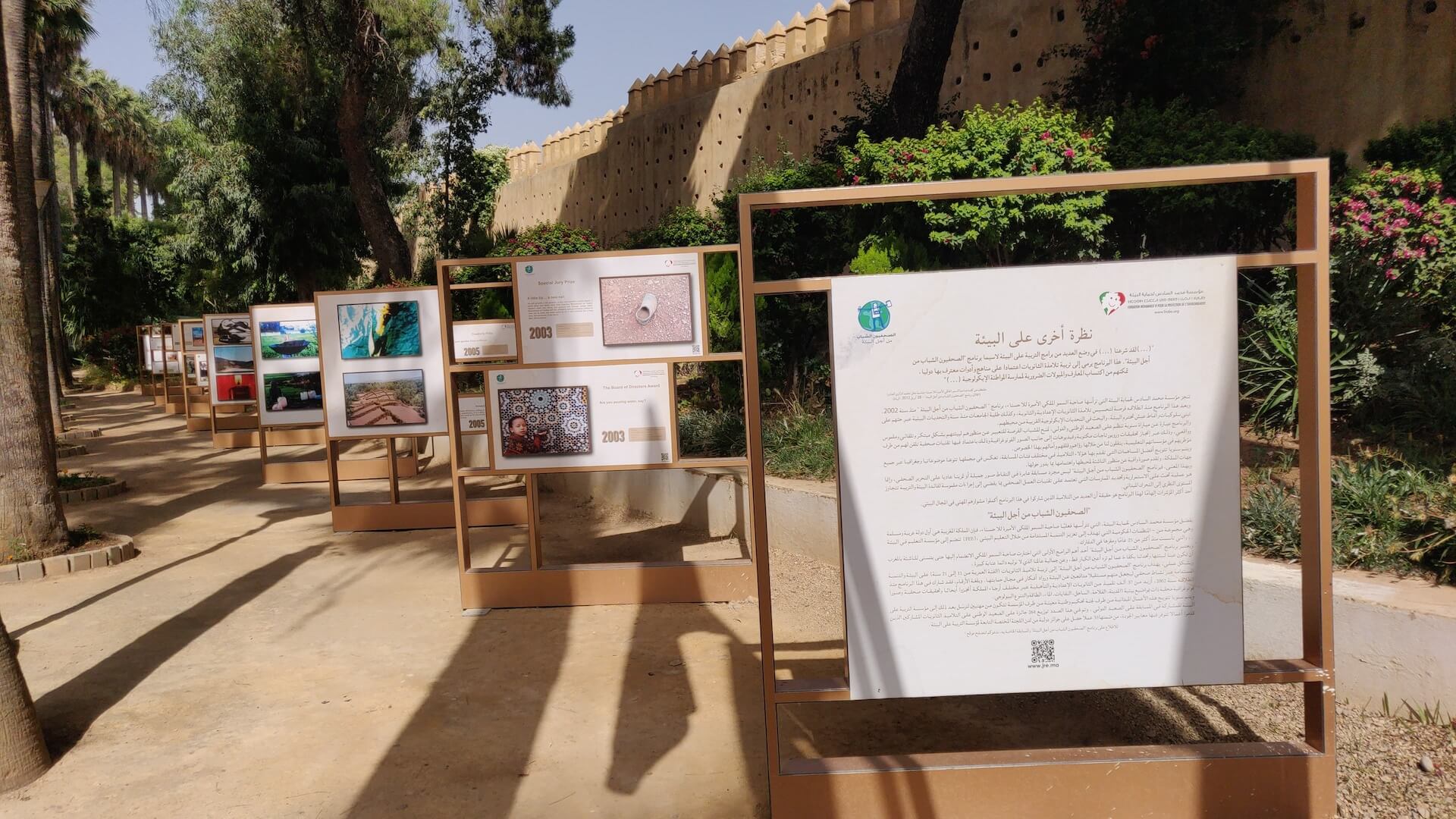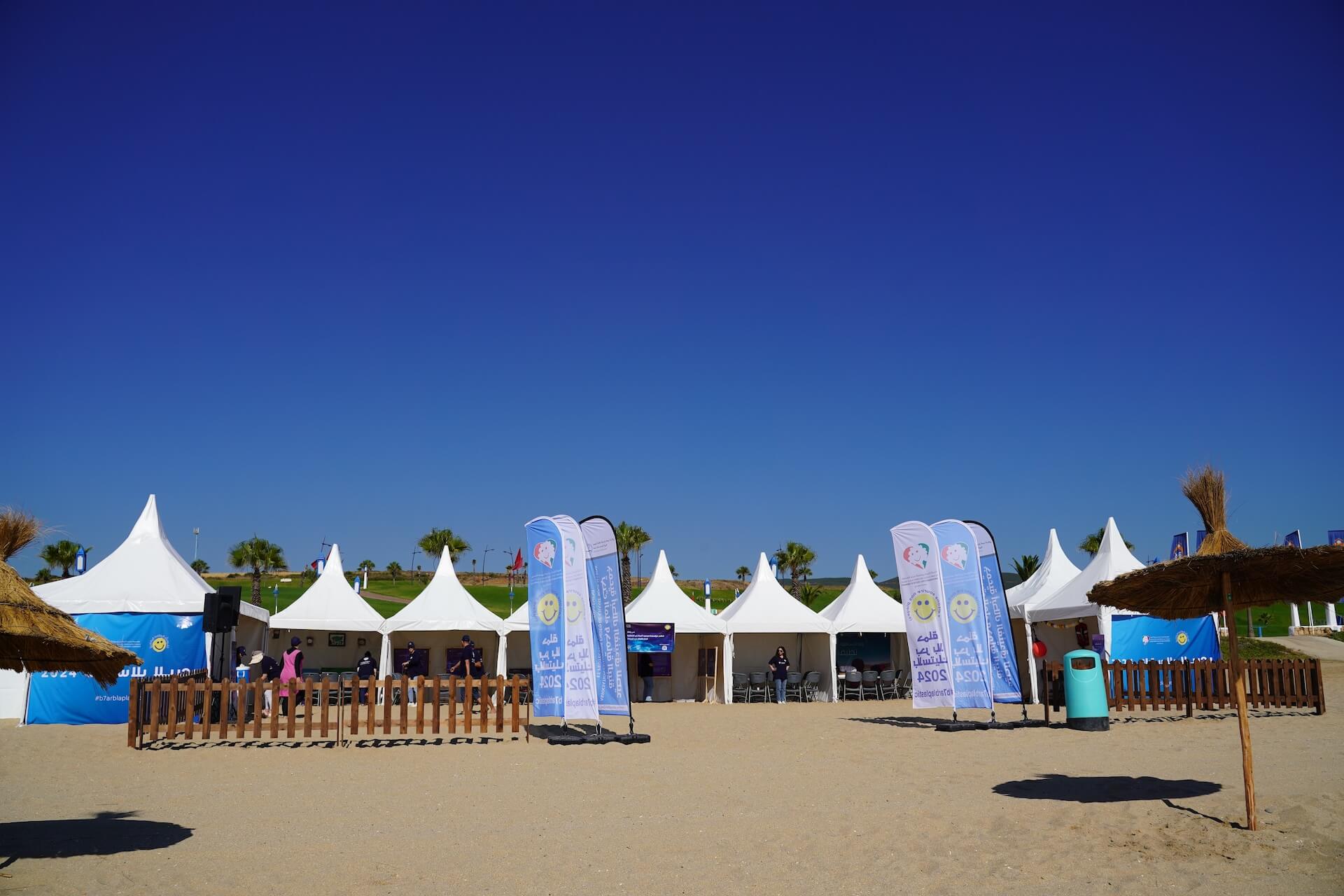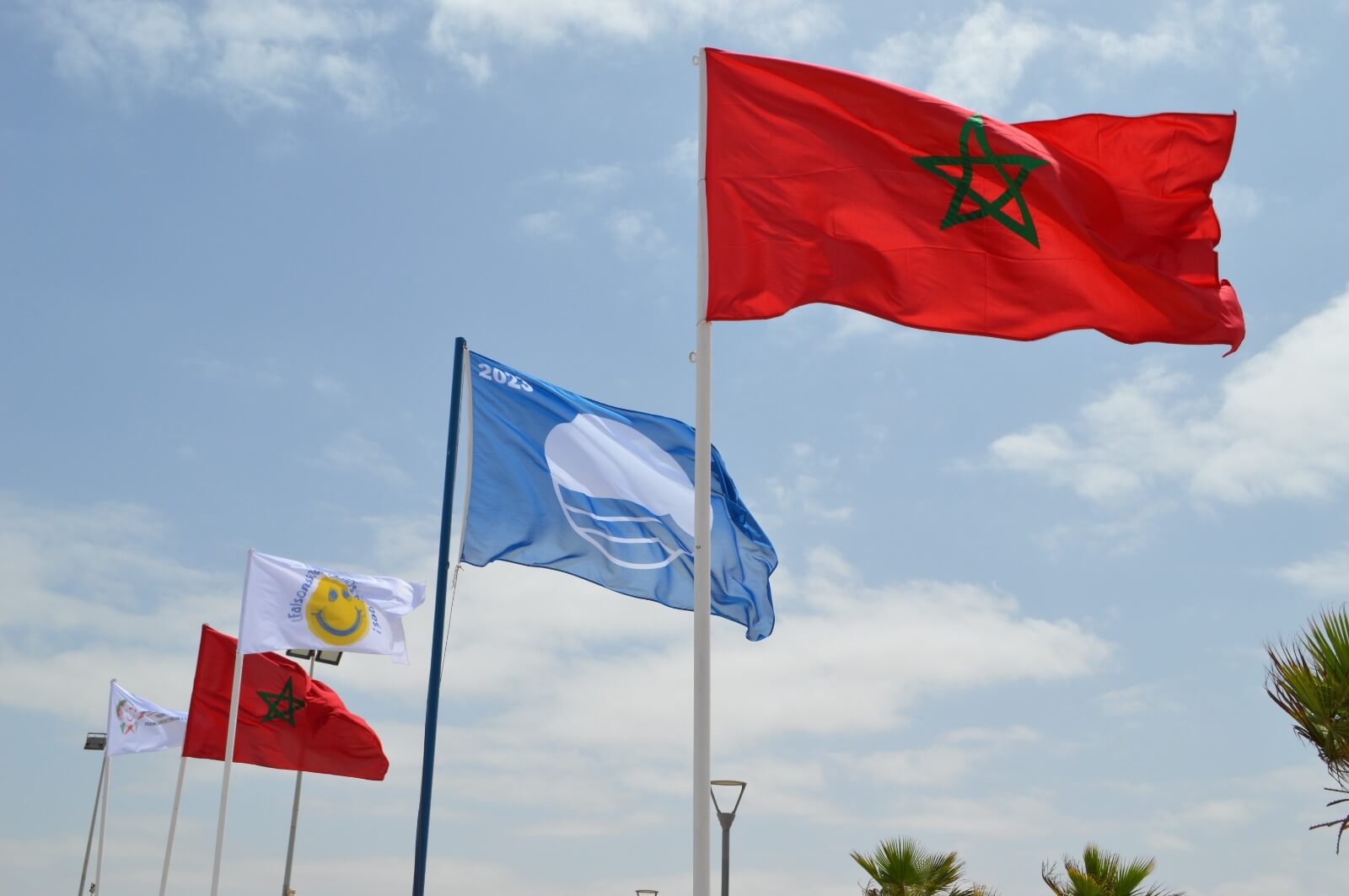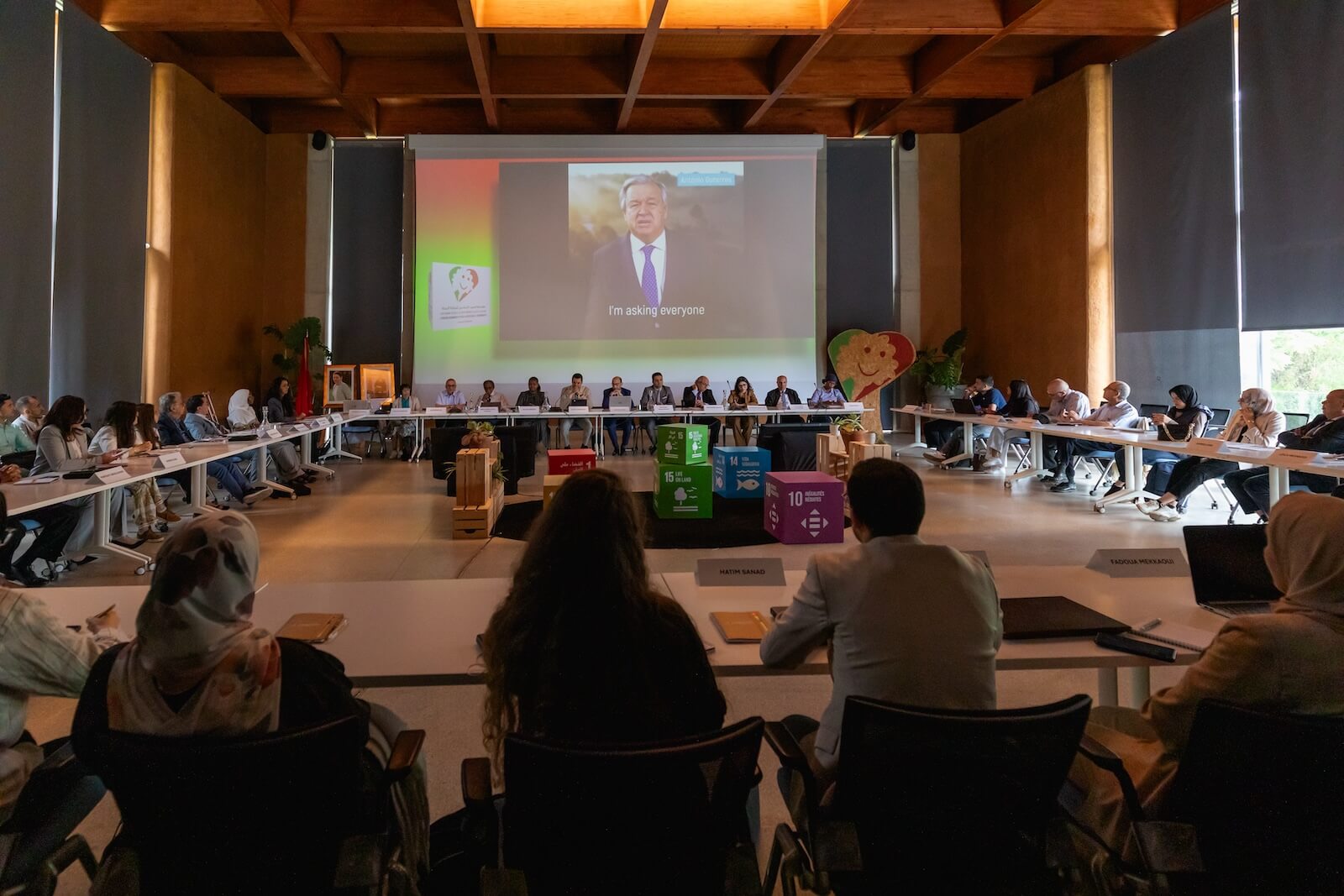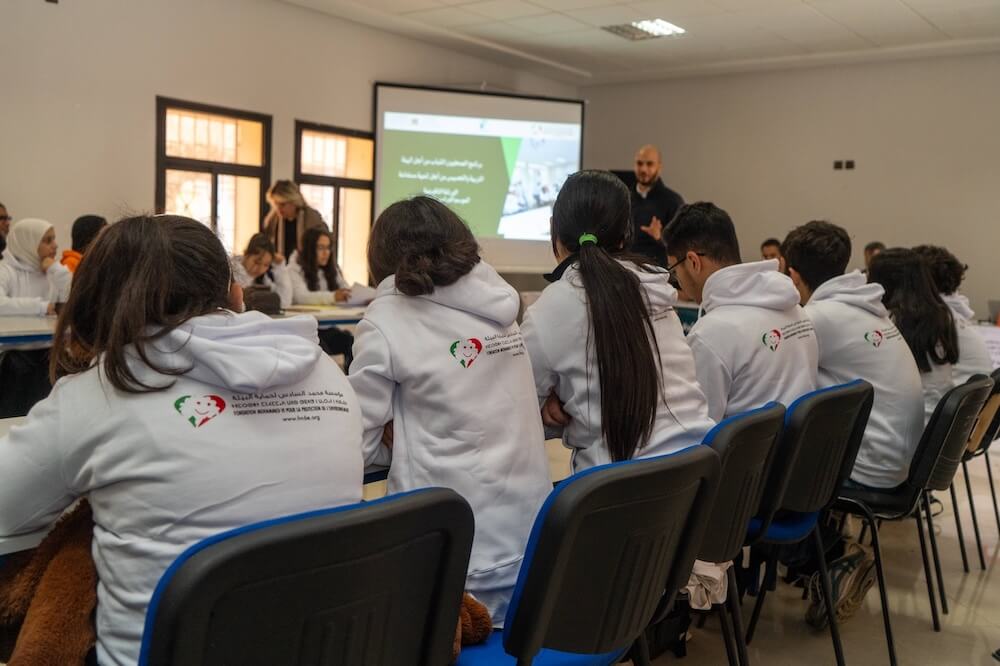
Expanding #bharblaplastic operation for the 23rd edition of Clean Beaches
As summer draws near and Moroccans start heading back to the beach, the Mohammed VI Foundation for Environmental Protection, chaired by HRH Princess Lalla Hasnaa, held a workshop on Wednesday, May 18, to gear up for summer coastline and ocean protection operations.
As part of the 23rd iteration of the flagship Clean Beaches program, the Foundation intends to capitalize on large beach audiences to raise awareness and educate the public on protecting oceans, as per United Nations Sustainable Development Goal (SDG) 14.
The Foundation is already actively involved in global efforts to preserve the world’s oceans. It is a leading member of UNESCO’s Intergovernmental Oceanographic Commission UN Decade of Ocean Sciences, and for which HRH Princess Lalla Hasnaa lent leadership as Patron.
The Foundation will on the ground, for the third consecutive summer, from June 15 to September 15, conduct Operation #bharblaplastic, voted best practice by the International Foundation for Environmental Education (FEE) in 2020. The initiative against plastic waste sets new action and awareness targets every year. The reprocessing of plastic waste introduced in 2021 to illustrate the virtues of a circular economy, is to be extended and expanded. In 2022, Operation #bharblaplastic expands its focus to include climate, of which Oceans are a fundamental regulator, and biodiversity, so abundant in our waters, yet so fragile.
The Foundation paved the way in launching Operation #bharblaplastic in 2019, and now intends to inclusively build the 2022 edition with all its partners: 66 local authorities, the supervisory General Directorate of Local Authorities, 27 business partners and over one hundred community-based organizations, ensuring they take ownership of the operation.
Operation #bharblaplastic rests on three pillars: youth as a priority target, eliminating plastic pollution and using digital technology to raise awareness. These pillars break down into four objectives:
Challenge 1: “10 tons less plastic waste per beach”,
Challenge 2: “10,000 environmental awareness actions”,
Challenge 3: “Raise awareness among 1 million young people”,
Challenge 4: “Recycle and reuse plastic waste collected on beaches”.
Outcomes for these challenges in 2021 were as follows:
Challenge 1: 521.46 tons of plastic waste collected on 66 beaches, i.e., 8 tons of plastic waste per beach. This is an increase of 35.06 tons over #b7arblaplastic 2019 results (+7.2%).
Challenge 2: 61593 awareness-raising actions on plastic pollution, cleaning, fun activities (workshops, animation…) carried out. Actions initiated up over 24.35% from #b7arblaplastic 2019, with 12062 additional actions;
Challenge 3: 1804260 young people engaged (+29% compared to #b7arblaplastic 2019).
Challenge 4: 38% recycling and recovery of waste collected. The May 18 workshop took place to collectively and collaboratively develop #bharblaplastic activities for the summer. To do so, stakeholders attended a preparatory session on April 27, during which they were briefed on project guidelines, with a view to drawing up practical action proposals on the ground, around the three themes selected for 2022: Climate change, Plastic pollution and Biodiversity.
Leading academics moderated panel discussions on all three theme sessions, namely Mr. Bernard Combes, Education for Sustainable Development and Biodiversity Program Specialist and UNESCO Earth Charter Focal Point, Mr. Jean-François Sys, Marine Biodiversity Officer at the IUCN French Committee, Mr. Felipe Victoria, Senior Manager for International Plastics Policy at U.S.-based NGO Ocean Conservancy, and Ms. Zaynab Sadam, WWF South Africa Regional Plastics Policy Coordinator – Africa. This collaborative and productive process is to produce the 2022 agenda for local authorities and economic partners to implement on the Foundation’s 106 Clean Beaches. Collectively, they will endeavor to educate the citizens of Morocco that reducing plastic waste, which is extremely harmful to the environment and biodiversity, is largely up to them.
The Foundation, with #bharblaplastic as with other initiatives, prioritizes digital resources to best engage youth, whom it strives to enlist in educational programs such as Eco-Schools and Young Reporters for the Environment, as well as in youth networks it supports, including the African Youth Climate Hub and the African Green University Youth Environmental Network.
The Hassan II International Center for Environmental Training, which is the academic arm of the Mohammed VI Foundation for Environmental Protection, designed the meeting, providing support to partners in awareness raising and educational activities. The Center seeks to develop a common scientific understanding of oceans. It draws on UNESCO tools, such as the “Access to Ocean Knowledge for All” educational kit, and promotes ideas, activities and games on ocean literacy, and strives to make these resources accessible to as many people as possible by making them available online.




